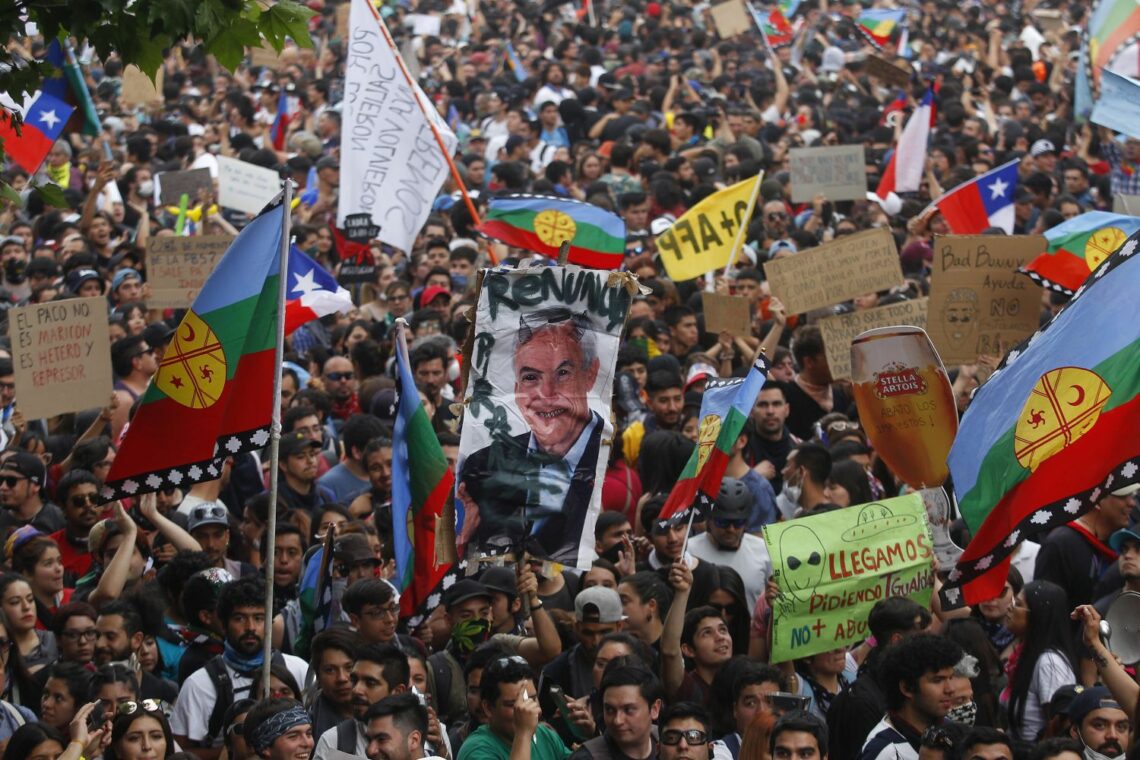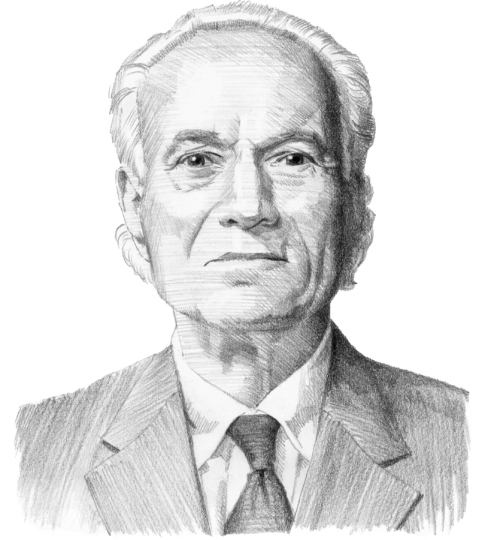Crises put Chile’s free-market consensus in danger
The Covid-19 crisis offered Chilean President Pinera a lifeline after months of protests. But his mismanagement of the pandemic led to the near-collapse of his governing coalition, and the status of Chile as a free-market bulwark in South America could be under threat.

In a nutshell
- Covid-19 has compounded the Chilean government’s trouble
- President Pinera has agreed to a plebiscite on the constitution
- A new constitution could threaten Chile and its free market
No world leader could have welcomed the global coronavirus pandemic more than embattled Chilean President Sebastian Pinera, for whom the crisis was, ironically, a lifeline amid political turmoil. Since October 2019, Chile has been rocked by enormous protests of citizens demanding a new constitution. Those protests paralyzed the economy and put President Pinera’s right-wing coalition in the vexing position of acceding to a constitutional plebiscite while also opposing the constitution’s replacement. The onset of the Covid-19 pandemic offered him an opportunity to flex his technocratic and managerial skills, demonstrate leadership and distract from the unrest.
However, the shortcomings of President Pinera’s response to the virus have led to the near-collapse of his governing coalition. Chile now faces the twin challenges of managing a pandemic and navigating the tempestuous waters of a referendum. Both problems will need to be solved by a presidential administration that has almost entirely been abandoned by its governing partners, despite the next elections being well over a year away.
Bungled response
Chile is a middle-income country with a well-regarded healthcare system. By all accounts, it should have handled the pandemic more adroitly than its neighbors. And, at first, it did. In April, the government moved quickly to prepare intensive care unit (ICU) beds, stock up on ventilators, and implement a testing system. The government health minister, Jaime Manalich, even announced that Chile would implement “immunity passports” – which would allow unrestricted travel to anyone with Covid-19 antibodies. On April 30, to great fanfare, the government announced the reopening of a huge shopping mall in Santiago and urged consumers to return to life as normal.
Within two weeks, the number of infections rocketed. The mall was shuttered and all of Santiago was locked down in quarantine. By July, Chile ranked among the worst in the world in terms of infections per capita. The virus ripped through Santiago’s more impoverished neighborhoods, laying bare the inequalities that had prompted the October protests. In a telling interview, Health Minister Manalich admitted that he “had not appreciated the level of poverty and overcrowding that exists in some parts of Santiago.” The immunity passport scheme was scuttled, and Mr. Manalich resigned when it emerged that Chile was reporting higher numbers of Covid-related deaths to the World Health Organization than it was to its citizens.
President Pinera has struggled to respond to the pandemic decisively. The opposition seized the moment.
Economically, Chile has suffered from the pandemic, though not disproportionately. Gross domestic product (GDP) plunged a staggering 14 percent in the second quarter of 2020, compared to the same period a year prior. Its mining sector remains strong – copper production has actually risen by 1.6 percent during the pandemic. Household consumption is down about 22 percent, hampering economic recovery.
Pinera struggles
Politically, President Pinera has struggled to respond to the pandemic decisively. The opposition seized the moment in July, proposing a bill that would allow citizens to withdraw 10 percent of their savings held in government-mandated privatized pension funds. In many cases, those with small funds would be allowed to withdraw the entirety of their pension savings. It was a bold and strategically brilliant proposal, offering both an immediate cash infusion to the economy and taking a swipe at the widely despised pension system that Mr. Pinera has repeatedly promised to reform, to no avail.
The president tried to rally his supporters to oppose the measure. His finance minister declared that it would amount to “bread for today, but hunger tomorrow,” failing to appreciate that most Chileans were worried precisely about bread for today. Opinion polls showed approval for the bill at over 80 percent, a stark contrast to President Pinera’s approval rating in the high single digits. Ultimately, the writing was on the wall. Nearly half of the president’s coalition partners broke with their leader and voted for the reform, creating a veto-proof majority and forcing the president to accede.
The defeat led to recrimination and infighting within the right-wing governing coalition, called Chile Vamos (Let’s go, Chile). Mr. Pinera immediately sacked nearly half of his cabinet, replacing his moderate interior minister, Gonzalo Blumel, with law-and-order hardliner Victor Perez, who has deep connections to the Pinochet regime (1974-1990). Meanwhile, conservative deputies who had voted in favor of the pension bill were brought before their party committees; several were forced to resign party membership.

President Pinera’s governing coalition relies on the cooperation of three parties: the moderate Evopoli party, the fiscally conservative National Renewal party and the ultraconservative Independent Democratic Union. The coalition’s current disarray suggests it will struggle to craft a unified platform on the most pressing question facing Chileans in a generation – that is, the question of a constitutional convention.
Troubled history
The Chilean constitution dates to the Pinochet dictatorship, when it was drafted with minimal democratic input. Since Chile’s return to democracy in 1990, the constitution has been amended dozens of times and yet, overwhelmingly, Chileans continue to view it as an illegitimate relic of a dark era whose drafters sought to limit democratic agency.
Some of the ways the constitution limited democracy were obvious. For example, Article 8 prohibited expressing any ideas that “offend the family” or “are based on class conflict.” It also provided that approximately one-quarter of senators would be “designated” by the military, rather than elected, and Augusto Pinochet himself would become a senator for life (senador vitalicio) upon his retirement. Finally, the constitution created a powerful National Security Council that lay outside civilian and democratic oversight. These and other provisions, called enclaves autoritarios (“authoritarian enclaves”) in Chilean legal circles, were the obvious hallmarks of Pinochet’s constitutional design.
In 2005, during the administration of President Ricardo Lagos (2000-2006), a series of important constitutional amendments were approved – over 50 in total. Many of the most important “authoritarian enclaves” were removed: unelected senators were scrapped, the president acquired the authority to replace military commanders and the National Security Council’s powers were severely curtailed. More obscure changes also proved vital in the long term: the legislative branch acquired more powers to oversee the executive and the structure of the Supreme Court was changed to expand the number of judges.
Finally, the 2005 constitutional reforms prohibited presidents from serving consecutive terms, laying the groundwork for a 16-year back-and-forth between President Pinera and former President Michelle Bachelet. Each has now been elected president twice.
The court has repeatedly invalidated legislation that inserts the hand of government into private markets.
The Lagos-era reforms left more subtle elements of the original design untouched. These included Chile’s infamous binomial system (wherein senate seats were awarded to both the first- and second-place candidates, virtually ensuring the overrepresentation of right-wing parties), as well as the rules governing changes to legislation. In particular, the existing constitution recognizes a specific category of laws, called “Organic Constitutional Statutes,” that require special legislative thresholds (three-fifths or two-thirds of Congress, depending on the subject matter) to alter. Many of the most divisive topics in Chilean politics today, including higher education, pension reform and the healthcare system, are governed by these statutes.
As a result, policy reforms that would require simple majorities in most democracies rarely achieve levels of consensus in Chile. Moreover, the 1980 constitution gave the Supreme Court ex ante review powers, meaning it reviews all legislation before it becomes law. The court has exerted a powerful conservative tendency, repeatedly upholding a vision of a subsidiary state and invalidating legislation that inserts the government’s hand into private markets.
As Pinochet’s constitutional design’s more subtle elements became apparent, more left-leaning Chileans began to view the Lagos-era reforms as insufficient. Demands for a new constitution resurged. In 2009, Eduardo Frei Ruiz-Tagle advocated for an entirely new constitution as part of his presidential campaign, but he lost to Mr. Pinera. In 2011, protests by Chilean university students paralyzed the country, demanding reductions in the cost of higher education via constitutional changes.
Then, in 2013, President Bachelet made replacing the constitution the central plank of her presidential campaign. She won in a landslide, and her administration did succeed in eliminating the binomial system and introducing gender quotas in congressional elections. But Ms. Bachelet’s aspirations to an entirely new constitution made it no further than compiling ideas in public assemblies, called cabildos.
Chileans will almost certainly vote to rewrite the constitution.
When Sebastian Pinera won reelection in 2017, he buried the project. But the protests of October 2019, which were unprecedented in their size and scope, rallied around an entirely new constitution as their central demand. President Pinera initially failed to recognize the sweep of the upheaval. His approval rating plummeted. Finally, the president did what would have been unthinkable even just a few months prior and called for a plebiscite to be held in April.
That plebiscite has now been pushed to October because of the Covid-19 pandemic and may be delayed again. When it goes forward, Chileans will almost certainly vote to rewrite the constitution. Current polling shows about 70 percent of voters will cast their ballots for that option.
Protracted uncertainty
The constitutional convention may turn into a Pandora’s box. Uncertainty and institutional instability would loom over the entire process, particularly for investors who would rightly wonder if Chile can be counted on as a bastion of stability and free-market priorities. But it is almost certain that areas of health, education and social security would see fundamental changes. The latter would probably be deprivatized – to the disappointment of the investment funds that manage the over $200 billion in assets that they have been handed but to the delight of most Chileans, for whom the system’s payouts are well below the minimum wage.
Very broadly, we can imagine two types of basic law that might emerge from a convention. The first would be a minimalist constitution, one that seeks to merely identify and enact rules of the game that have the support of most Chileans. Such a constitution would stand in stark contrast to the existing one, which sought to preserve the Pinochet dictatorship’s legacy by constitutionalizing specific policy areas, such as pensions and healthcare.
A minimalist constitution would likely outline new social rights not currently present, including the recognition of indigenous peoples, which could go a long way toward calming ongoing tensions with the Mapuche in Chile’s southern regions. A minimalist constitution would likely preserve most free-market structures in Chile but would remove the requirement that the state always be subsidiary to the private sphere.
However, given the level of social discontent that preceded the coronavirus epidemic and has now been, if anything, amplified by it, it is conceivable Chileans would elect as constitutional framers a much more vocal and revisionist body. The younger generation in Chile is increasingly uninterested in preserving the free-market consensus that has defined Chile’s economy since the return to democracy. The possibility, however small, that anti-free market voices will hold a dominant position in the constitutional convention will likely lead to protracted investment uncertainty for the next two years, as the process plays out in Chile.






